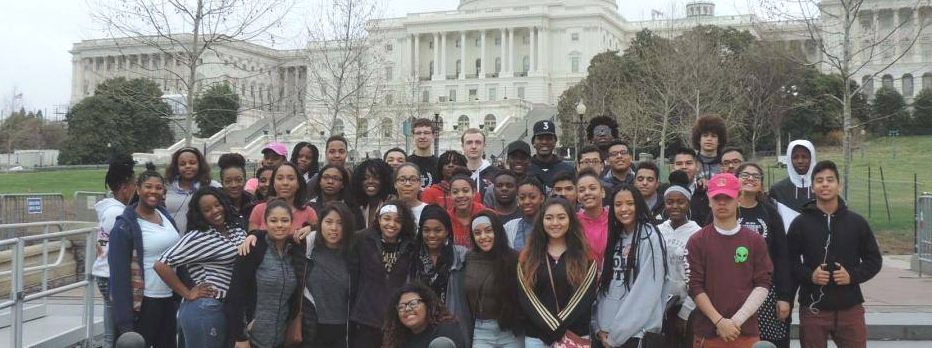This past year has been trying in ways that many of us couldn’t have ever imagined before the onset of the COVID-19 pandemic. Across the country, hundreds of thousands of citizens have been put into difficult positions where they must choose between earning a paycheck and putting their loved ones at risk of being exposed to a deadly disease. And that is just the least of it.
For those Americans who are living at or below the poverty line, some of those choices haven’t even existed. Many have lost jobs as employers cut back to save their suddenly deeply uncertain business future. These losses have pushed those who are already at the highest risk into positions of desperation.
Many high school age students and those who have just recently graduated are at a particularly vulnerable place right now. A considerable number may be finding fewer job options awaiting them as they enter the workforce in a contracting economy. Others may already be struggling to help their families make ends meet without the added difficulties associated with the virus.
An expanding gap
As schools have closed and reopened and closed again as a result of the pandemic, many students and their parents are experiencing some level of whiplash regarding their education. The starting and stopping, as well as the difficulties in transitioning from in-school to online learning, have been incredibly challenging for many students. This is especially true in households where the technology and support for online learning may not exist due to financial constraints.
Many experts are deeply concerned that the educational fallout from COVID-19 will be severe, especially for those students coming from low-income households. In many of these cases, parents are working as much as they can to make ends meet and may not be available to make sure their kids are attending and paying attention in their online classes. They may not be in a position to help students with homework or technological difficulties.
This expanding gap could have profound long-term side effects. Students whose families are facing economic difficulties at home may be at greater risk for homelessness and keeping up in school may be the least of their concerns. Regardless of the reason, studies indicate that students who fall behind in their education typically have an incredibly difficult time catching back up, which could ultimately lead to fewer opportunities and a higher risk of negative fallout associated with limited options.
Creative opportunities
Those educators who are seeing the daily struggles their students are dealing with have some of the deepest understanding of how serious the problem is likely to become. Many of these teachers are working tirelessly to seek funding opportunities that will enable them to help their “at-risk” students to a greater degree. Many have developed ideas and programs that are making a real difference.
For instance, some schools are promoting after-school programs that can help students accomplish different goals whether, they are getting help with homework or gaining experience in a career path they might be interested in pursuing after graduation. Many schools offer places where students can safely store their personal items. In some settings, these school storage spaces can be safer than the home.
Other programs are more directly focused on keeping students in school and helping them to stay out of trouble. One of these is the Alternative to the Court Experience Diversion Program (ACE) which targets at-risk teens and pre-teens who have been involved with the legal system. The ultimate goal is to give students a more structured environment with the support they need to be successful and the ability to help keep themselves off the streets.
Can career counseling help?
For some students, there may just not seem like that many options exist for them after graduation. This is where someone like a career counselor could make a difference. Career counselors work with students to help them discover potential career paths and determine what they need to do to reach a career goal.
Because of direction such as this, some students have been able to learn resume-building and interview skills necessary to gain apprenticeships that will lead to stable, well-paying jobs. Learning that good opportunities aren’t that far out of reach is an important task that can really make a difference in the lives of students.
***
The COVID-19 pandemic has created a huge challenge for many students who were already struggling. Many are contending with difficulties at home that put education on the backburner, which ultimately perpetuates struggles over the long-term. School programs and career counseling that are designed to target at-risk students and help them develop themselves and reach career goals can play a pivotal role in helping reduce the risk in their young lives.
Charlie Fletcher is a freelance writer who is passionate about workplace equity, and whose published works cover sociology, politics, business, education, health, and more. You can see more of her work by visiting her portfolio at: charliefletcher.contently.com.








